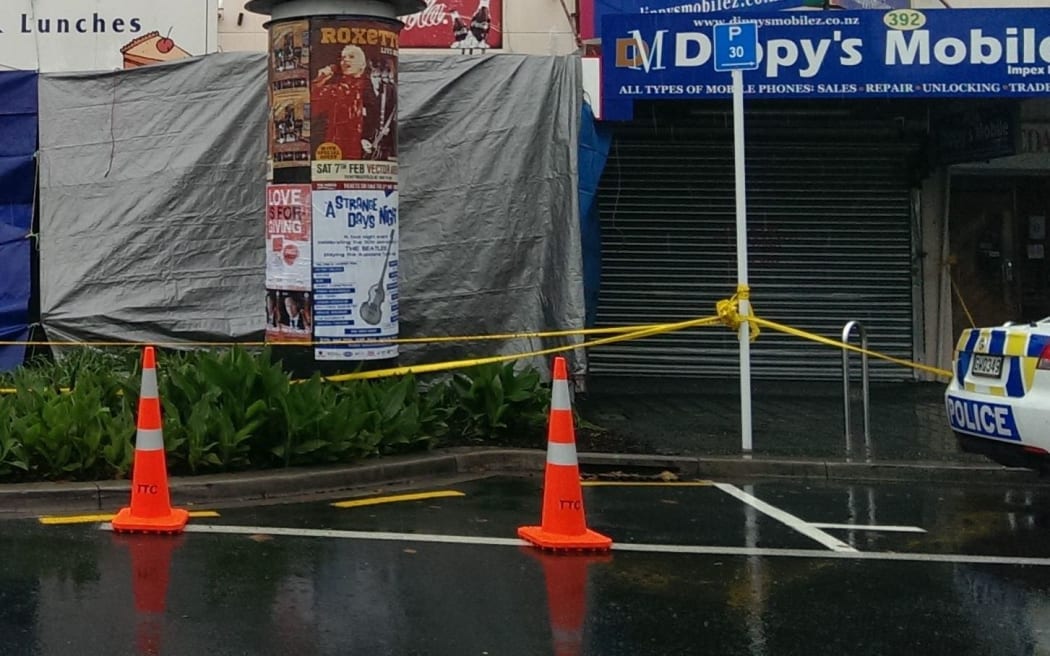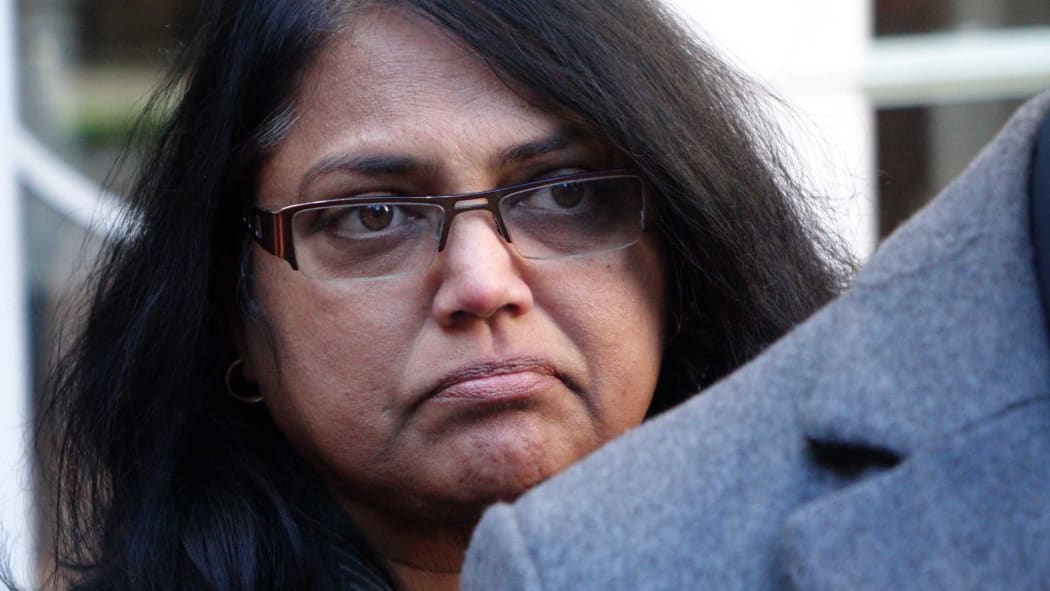The details which emerged from the Kumar trial shocked the local community and sparked soul searching across the country. Edward Gay looks back at the troubled teenagers at its core.

The scene of the attack in Henderson, Auckland. Photo: RNZ
The two boys, 14 and 13, who listened to the jury pronounce their verdict this afternoon were never going to lead ordinary lives.
As an unborn child, the younger boy's brain development was severely affected by his mother's drinking. She was also on methamphetamine and was inside prison when her son was involved in the fatal robbery that left 57-year-old Arun Kumar dead.
Her son was just 12 when the robbery took place and had already witnessed horrific violence meted out by his father, a patched gang member.
The boy's mother told the court her children got so used to the violence, they would run and hide under the bed before it even began.
The boy's father has a history of violence, and according to court documents released to Radio New Zealand News the man was one of seven who was involved in a criminal incident when he and fellow gang members armed themselves before kicking in the door of a house.
They bundled a woman into a bedroom and pulled the rings from her fingers before stealing other jewellery.
One of the men poured petrol on another woman and then pulled out a cigarette lighter, telling her "I'm going to make an example of you, b***".
Less than a year after this incident, the boy was at the Railside dairy with a pole in his hand, watching his friend inside with a knife.
That friend, 13 years old at the time, followed Mr Kumar behind the counter, where he stabbed him twice before landing the fatal blow to Mr Kumar's neck.
Mr Kumar's wife, Anita, tried to help. By this time, she had returned from raising the alarm at the bakery next door. She'd also wrestled the pole from the 12-year-old boy at the front door and had tried to strike the other boy who was wielding a knife and stabbing her husband.
The security camera footage, played repeatedly in court, showed the boy landing the fatal blow to Mr Kumar's neck before sprinting from the shop, knocking food from the shelves as he left.
Mr Kumar put his hand to his neck and walked slowly towards the door before collapsing on his righthand side. He died minutes later.

Arun Kumar's wife Anita Kumar outside the High Court in Auckland after the jury's verdict. Photo: RNZ / Kim Baker Wilson
Childhood of drugs and neglect
Each time the footage was played, Mrs Kumar could be heard sobbing in the back of court. Seated in front of her, just beyond the bar, was the boy who took her husband's life.
Like his friend, his childhood included drugs and neglect, an important element of his defence.
The court heard how he went to eight different schools and lived in various homes across Auckland.
There were 20 notifications to Child Youth and Family, half of which were for domestic violence. In 2004 alone there were three investigations by social workers who found that the younger children were often left in the care of the older ones aged 12 and 13.
They also found the boy's mother was using heroin and methamphetamine and was shooting up in front of the children.
Child Youth and Family declined to be interviewed about the case.
The boy's brother told the court the 13-year-old - now 14 - was hooked on synthetic cannabis at the time of the dairy robbery. He described him as looking like a zombie.
As well as the drugs and violence, the boy also had a severe brain injury.
At the age of eight, he was hit by a car on a pedestrian crossing, flung four metres into the air and left with a fractured skull and brain damage. A neuropsychologist told the court that any adult with the same injury would be off work for two years, yet this boy was sent back to school in two weeks. He received no rehabilitation.
It was at this point, according to his brother, the boy's behaviour started to change. His school was also concerned. His records show he was making suicidal comments and had episodes of self-harm.
On one occasion the boy banged his head against a wall repeatedly. When asked by a teacher why he was doing that, the boy replied it was because he didn't want to feel anymore.
The school referred the boy to the Kari Centre - a mental health service for young people, administered by the Auckland District Health Board. According to the neuropsychologist, Valerie McGinn, when the centre got around to assessing the boy, they found there had been an improvement and there were no longer any concerns.
Dr McGinn said she found that conclusion "impossible".
The health board declined to be interviewed by Radio New Zealand News. Despite the boy's name suppression, the board cited privacy concerns.
Dr McGinn told the court she had put the boy through several tests, one of which he scored at the rate of a six-year-old. She found he had brain damage.
She found the boy was particularly vulnerable during complex situations when he would act impulsively, with little or no thought of consequences.
She said being armed with a knife inside the dairy was one of these situations.
The boy's defence lawyers argued that had to be taken into account by the jurors, when assessing the boy's intent. But veteran Crown prosecutor Kieran Raftery summed it up by saying anyone who uses a knife on the neck of another knows they will cause serious harm.
Mr Raftery said while the pair have tragic and difficult backgrounds, they were still guilty of taking part in the fatal dairy robbery.

